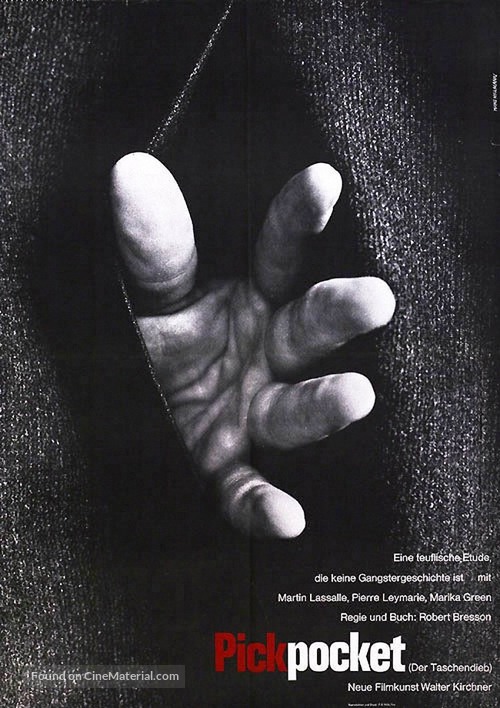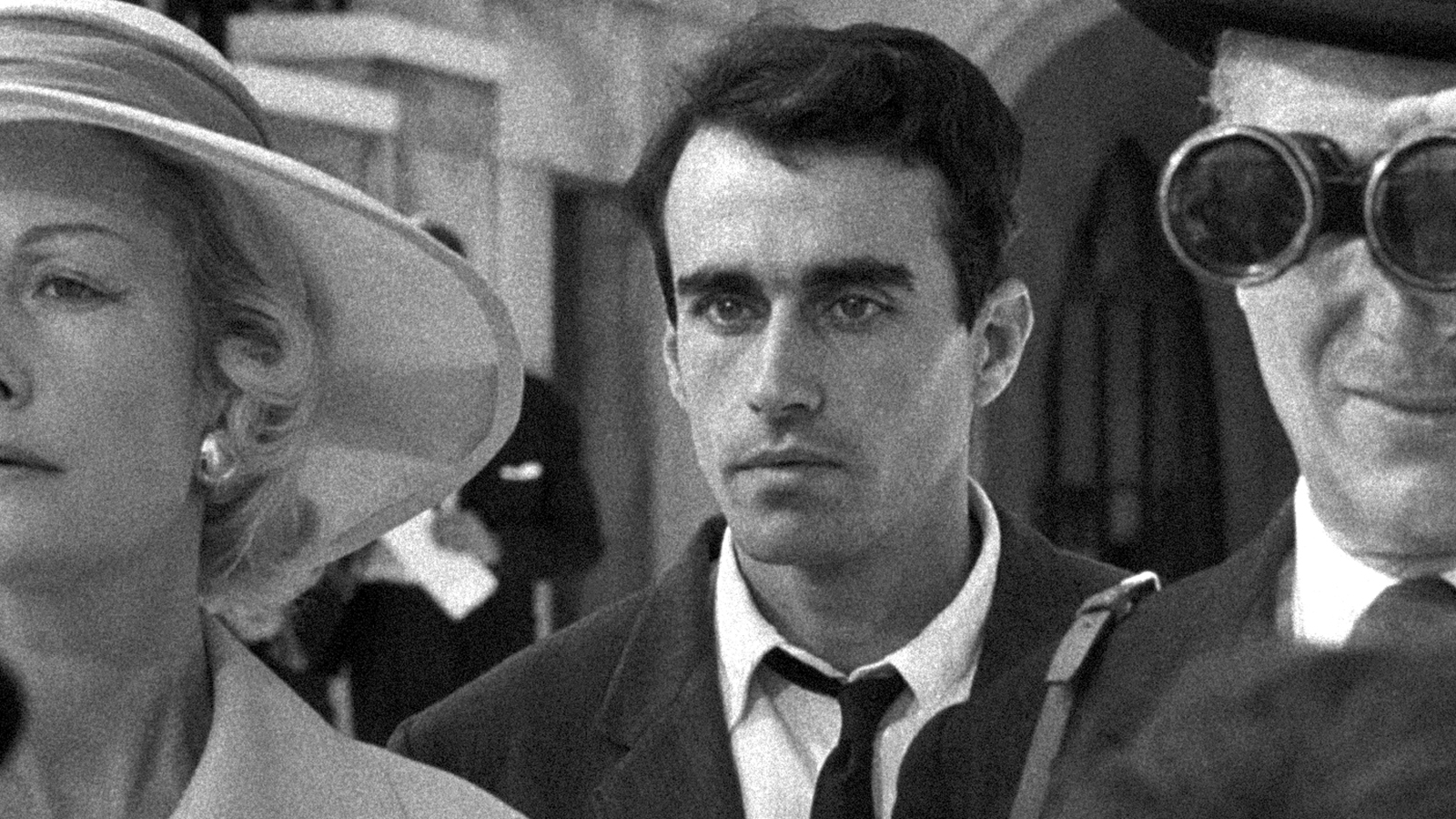

The cookie is set by GDPR cookie consent to record the user consent for the cookies in the category "Functional". The cookie is used to store the user consent for the cookies in the category "Analytics". This cookie is set by GDPR Cookie Consent plugin. These cookies ensure basic functionalities and security features of the website, anonymously. If this seems a gloomy process through which to journey, there are always points in his films where redemption and exaltation prevent glumness.Necessary cookies are absolutely essential for the website to function properly. And most of his central characters seem imprisoned, if only in the soul, either through their misfortunes or because society has made it inevitable.
#Pickpocket 1959 trial
Prison also features Les Anges du Péché, Un Condamné à Mort s'est Echappé and The Trial of Joan of Arc. His films have little or nothing to do with those of the French New Wave but a lot to do with his Catholic background and the fact that he spent 18 months in a German prison camp during the second world war. It is not an easy process but it is a rewarding one since you feel he has a profound understanding of what he is talking about. For him, "the most important ideas in a film are the most hidden", so the watcher has to look hard to find them. His literary adaptations - from Giraudoux, Diderot, Bernanos and Dostoevsky - are often merely points of departure. The Longchamp races frame the story and one notable sequence follows another, so that the parable grips even at its most internal.īresson is clearly not a film-maker for everybody, but he has pursued his own way remorselessly for the best part of 40 years and he has a very faithful audience. He also pays great attention to the sounds of the city which resound in the small apartment in which Michel lives. Only once does another way of working come into it when Bresson, who was fascinated by the methods used by pickpockets, describes the operations of a gang among the crowds at a railway station. The story is told in the form of Michel's diary, almost exclusively in mid and long shots with minimal camera movements and fade-outs as an alternative to editing. The humiliation of prison inspires him to a desperate act of faith.

It is only when he is visited in prison by Jeanne (Marika Green), the girl who looked after his mother before she died and is now abandoned with a child, that he realises that his whole life could be changed by love. But he has to leave France for London when the band of thieves he joins is arrested. In that way, picking pockets becomes an exciting, almost sexual adventure. The only way he can find a place for himself in society is to engineer a head-on collision with it. Michel (Martin Lasalle) is a petty thief who, after being arrested and then released, starts discussing the rights and wrongs of crime with the police inspector. The point is that the film is as much a visual argument as a spoken one. But this 1959 epic has seldom been equalled as a philosophical treatise on the subject. It is, at base, about self-fulfilment and redemption through love - a common enough idea in films. But there's no doubt that he is a great film-maker, and that Pickpocket is one of his masterworks. Which is partly the reason why not everybody warms to his rigour and severity. He relies entirely on his instinct." Most people think that Bresson, one of the few film-makers who has never had to compromise for commercial purposes, is an intellectual who knows precisely why he wants what he wants. "Nobody could be less dogmatic or more obstinate than he. Jean Pelegri, one of the non-professional actors in Bresson's Pickpocket, said of his director: "He knows what he wants but he doesn't know why. Starring: Martin Lasalle, Marika Green, Pierre Leymarie, Jean Pelegri Screenplay: Bresson, inspired by Dostoyevsky's Crime and Punishment


 0 kommentar(er)
0 kommentar(er)
